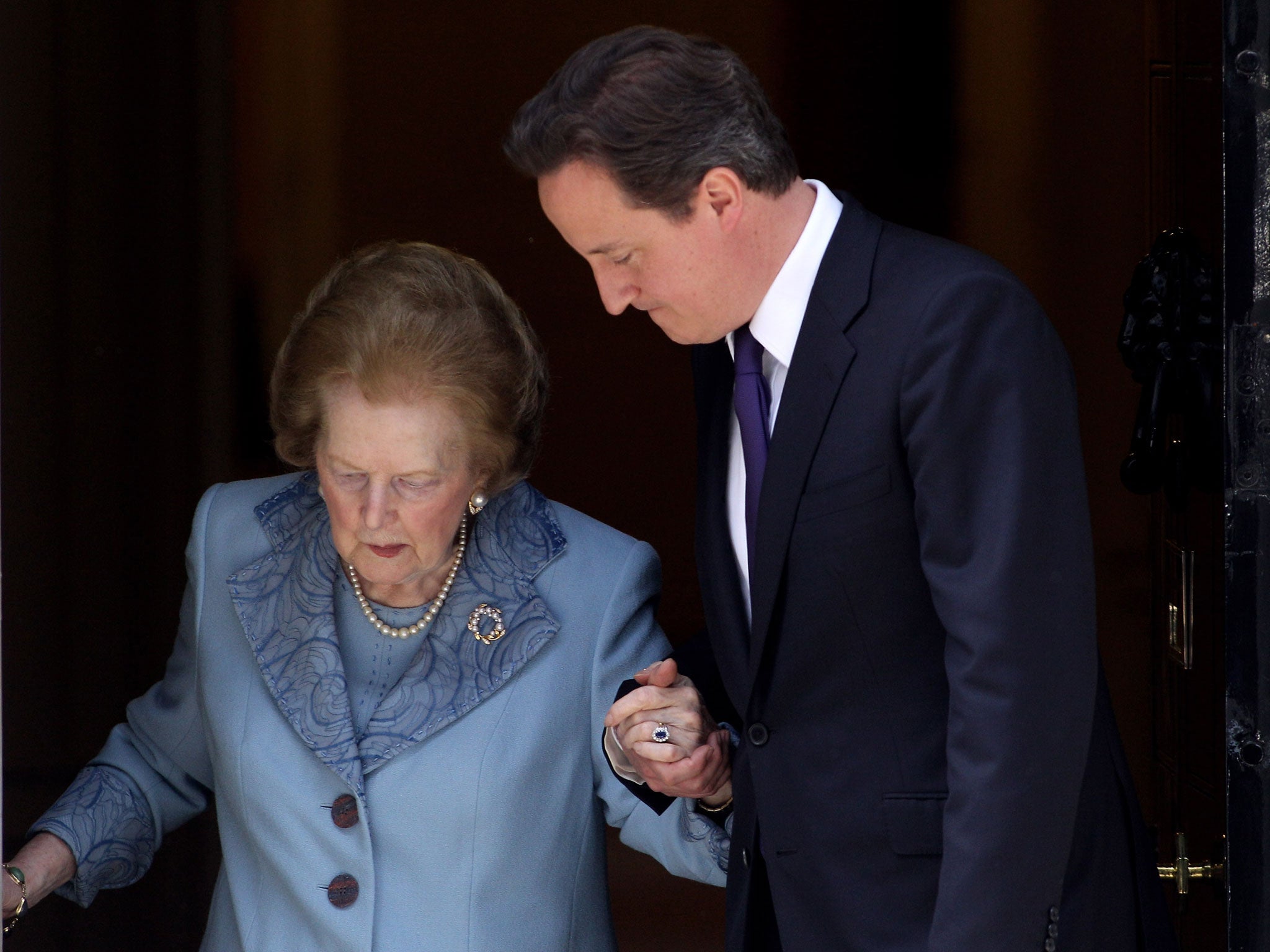David Cameron repeats Margaret Thatcher word-for-word and claims there's 'no such thing' as public money
The Tory leader's comments will appeal to the Conservative party's core vote

Your support helps us to tell the story
From reproductive rights to climate change to Big Tech, The Independent is on the ground when the story is developing. Whether it's investigating the financials of Elon Musk's pro-Trump PAC or producing our latest documentary, 'The A Word', which shines a light on the American women fighting for reproductive rights, we know how important it is to parse out the facts from the messaging.
At such a critical moment in US history, we need reporters on the ground. Your donation allows us to keep sending journalists to speak to both sides of the story.
The Independent is trusted by Americans across the entire political spectrum. And unlike many other quality news outlets, we choose not to lock Americans out of our reporting and analysis with paywalls. We believe quality journalism should be available to everyone, paid for by those who can afford it.
Your support makes all the difference.David Cameron has invoked Margaret Thatcher’s economic doctrine in an election-time push to shore up the Tory core vote.
Speaking in Bristol on Monday Mr Cameron claimed there was “no such thing as public money” – a claim made by Ms Thatcher at the 1983 Conservative Party conference.
“We know that there is no such thing as public money – there is only taxpayers’ money,” Mr Cameron said – repeating the late prime minister word-for-word.
“And we know how we’d rather see it spent: not on bureaucracy or the latest crackpot government scheme but on you, your family – your future.”
The comments come as the Tory leader today used an interview with the Daily Telegraph to tell Ukip voters to “come home” to the Conservative party.
In 1983 Ms Thatcher also told the Conservative conference: "There is no such thing as public money – there is only taxpayers’ money"
Mr Cameron’s public positioning with regards to his predecessor has shifted during his time as Tory leader.
In opposition he downplayed his links to previous Conservative leaders as part of his efforts to present a modern party image.
But since winning power with the help of the Liberal Democrats Mr Cameron has invoked the divisive late prime minister a number of times.
In April 2013 he declared that “we are all Thatcherites now”, by rowed backed on his claim within weeks, telling the Sunday Times he was no Thatcherite.
The claim that the Government can only spend ‘taxpayers’ money’ is factually inaccurate: central banks can directly finance public spending through monetary policy without resorting to taxation.
Profitable publicly-owned assets and industries can also finance spending without resorting to taxation. It is also common to indefinitely roll over bond-financed government spending.
Labour and the Conservatives are roughly neck-and-neck in national opinion polls and the parties will be eager to fight for every percentage of the vote.
Mr Cameron’s efforts to attract Ukip voters ‘back’ to his party may however be based on a misconception.
While large numbers of 2010 Conservative voters have defected to Ukip, most Ukip voters are in fact not habitual Tories.
A Lord Ashcroft poll of Labour-Conservative marginal from March found that 68% did not vote Conservative in 2010.
Of who voted in 2010, the Tories lost more than twice as many 2010 voters to the eurosceptics than Labour, however.
By far the biggest group, 48.5%, did not vote in 2010 or did not vote for one of the three main parties.
Many would even prefer a Labour government to a Tory one if made to choose, the polling found.
Join our commenting forum
Join thought-provoking conversations, follow other Independent readers and see their replies
Comments